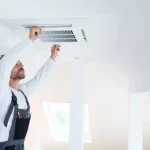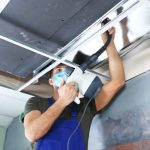Replacing a central air conditioning unit is a significant investment for homeowners. AC replacement is a common concern, and understanding the costs involved is crucial.
The price to replace an air conditioning unit, including ac replacement costs, can vary widely based on several factors. Factors like home size, unit efficiency, and installation complexity play a role.
In South Florida, the climate demands efficient cooling systems. The type of ac system and ac unit you select can significantly impact the overall expense, making the choice of the right unit even more important.
Energy-efficient models might cost more upfront, affecting the ac unit cost and ac unit costs. However, they can lead to savings on energy bills over time, balancing initial and long-term expenses.
The SEER rating of a unit is a key factor in determining its efficiency. Higher ratings often mean better performance, and average costs for different efficiency levels can vary accordingly.
Installation costs can also vary. Labor rates in South Florida might be higher due to demand, and the new ac unit cost is an important part of the total investment.
Additional expenses, like ductwork repairs, can add to the total cost. It’s important to consider these when budgeting.
Investing in a new system can improve home comfort and air quality. Choosing a new ac unit can also enhance efficiency and overall comfort. It’s a decision that requires careful consideration.
What Is Central Air Conditioning and When Should You Replace It?
Central air conditioning is a system designed to cool an entire home evenly. It operates through a network of ducts that distribute cool air. This type of system offers consistent temperatures and improved comfort throughout the home, making it ideal for cooling the entire house.
Replacing your central air system may be necessary due to age or inefficiency. Most units have a lifespan of 10 to 15 years. As systems age, they often become less efficient and need more frequent repairs.
Key indicators for replacement include rising energy bills and inconsistent cooling. Frequent breakdowns or unusual noises can also be signs of wear. If your unit struggles to keep the home comfortable, it may be time to replace your air conditioner to maintain optimal performance and energy efficiency.
Consider these signs when determining if replacement is necessary:
- Age over 10 years
- Inefficient cooling
- Frequent repairs
- Rising energy costs
Recognizing the need for ac replacement ensures continued comfort and efficiency. A new system can offer peace of mind and improved performance.
Signs You Need to Replace Your Central Air Conditioner
Knowing when to replace your central air conditioner can save you from unexpected breakdowns and high energy bills. If your air conditioning system is over a decade old, it may be reaching the end of its useful life. Frequent repairs are another red flag—if you find yourself calling for service more often, it could be more cost-effective to invest in a new air conditioner rather than continuing to fix an aging unit.
Uneven cooling throughout your home is also a common sign that your central air conditioning system is struggling to keep up. Rising energy bills can indicate that your system is losing efficiency, forcing it to work harder and use more electricity. Other warning signs include a noticeable decline in indoor air quality, increased humidity levels, or unusual noises coming from your central air conditioner.
If you’re experiencing any of these issues, it’s wise to consult a trusted HVAC contractor. They can assess your current system and help you determine if a new unit is the best solution for your comfort and budget. Replacing your central air conditioning system is a significant investment, but it can lead to improved comfort, lower energy bills, and fewer disruptions in the long run.
Average Central Air Conditioner Replacement Cost in 2025
Understanding the cost to replace a central air conditioning unit is crucial for budgeting purposes. In 2025, the average cost ranges from $3,000 to $7,000. AC replacement costs are influenced by factors such as unit type, installation complexity, and energy efficiency, all of which impact the overall expense.
The size of the unit plays a significant role in pricing. Larger homes require more powerful systems, which typically increase ac unit costs. Additionally, the unit’s energy efficiency is a critical factor in overall expenses.
Energy-efficient models might have a higher initial price. However, they offer significant savings on utility bills over time. Average costs can differ based on SEER ratings, so it’s essential to consider both upfront costs and long-term benefits.
Labor costs and regional differences also affect pricing. For instance, areas with higher demand, like South Florida, may have increased installation rates. Installation complexity and required electrical work can further influence the final cost.
Here’s a summary of factors influencing costs:
- Unit size and power
- Energy efficiency ratings
- Regional labor costs
- Installation complexities
Knowing these factors helps homeowners make informed decisions. Considering new ac unit cost as part of the decision-making process is important. Choosing the right system involves balancing cost, efficiency, and home needs. Ultimately, investing in a new system can enhance comfort and reduce expenses in the long run.
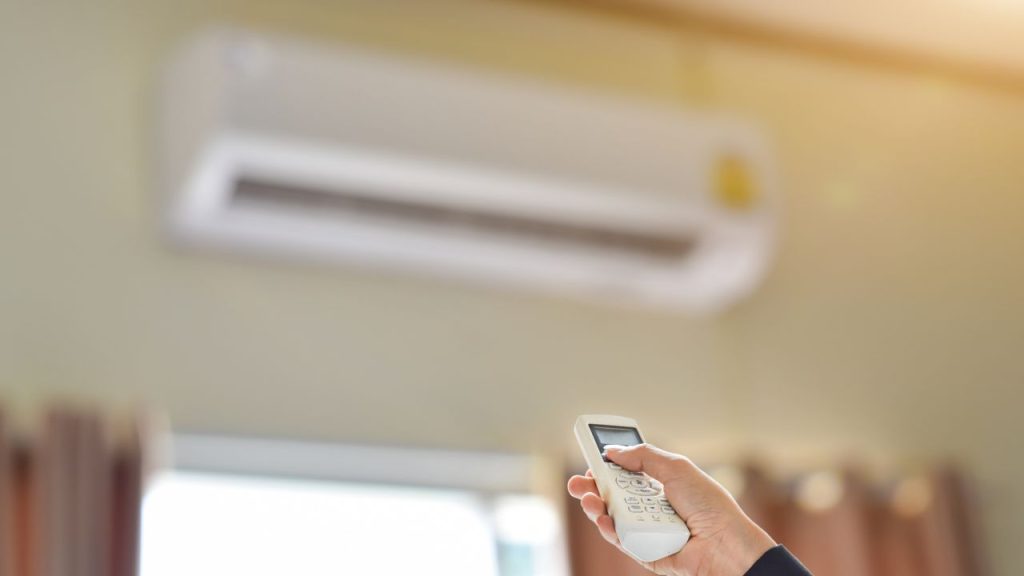
Key Factors That Affect Central Air Conditioner Replacement Cost
When considering the cost of replacing a central air conditioning system, it’s important to look at all the factors that can influence the final price. Understanding these can help homeowners anticipate expenses more accurately. The size of the home is a primary consideration, as larger spaces require more cooling power.
The energy efficiency of the unit is another significant cost determinant. The SEER or SEER2 rating of your ac system, especially for a central ac system, plays a major role—systems with higher SEER ratings may cost more initially but save money over time.
The condition of your home’s existing ductwork can impact costs as well. Deteriorated ducts may require repairs or replacements, adding to the expense.
Installation complexity can also influence the final price. Installing a central ac unit in homes with difficult layouts or older construction may face higher labor costs.
Certain upgrades or features can further increase expenses. These might include smart thermostats or advanced filtration systems.
Homeowners should also account for potential hidden costs like permits or old unit disposal fees. It’s essential to ensure the system complies with all local codes and regulations to avoid additional expenses or issues.
Lastly, financing and rebate options can alter overall expenses, providing opportunities to offset initial costs.
Home Size and Cooling Capacity
The size of your home directly impacts the cost of your cooling system. Selecting the right AC unit for your home’s size is essential for both comfort and efficiency. Larger homes require units with higher cooling capacities. These units tend to be more expensive but are necessary to ensure comfort.
It’s crucial to choose a system with the right capacity, especially if you want to cool the entire house effectively. Installing an undersized unit can lead to inadequate cooling, while an oversized unit can be inefficient.
Consulting with a professional can provide accurate assessments. They can help determine the correct unit size for your home, including ensuring the outdoor unit matches your home’s requirements.
Key considerations include:
- Total square footage
- Number of rooms
- Ceiling height
Energy Efficiency and SEER Ratings
Energy efficiency plays a vital role in a system’s total cost. Systems with higher SEER ratings are more efficient, often priced higher upfront. Choosing an efficient unit not only reduces energy consumption but also provides significant long-term savings and improved performance.
However, they offer long-term savings on energy bills. When selecting a replacement system, consider choosing a central ac unit with a high SEER or SEER2 rating to maximize efficiency and meet regional energy standards.
An efficient system can quickly offset its initial investment through reduced energy use. High-efficiency options may also qualify for rebates. Ensuring proper operation through professional installation and maintenance is crucial for achieving maximum efficiency and maintaining warranty coverage.
Considerations for choosing efficient units:
- SEER rating of 16 or higher
- Potential energy bill savings
- Eligibility for rebates
Ductwork Condition and Modifications
Existing ductwork’s condition is another factor impacting replacement costs. Damaged or outdated ductwork can increase expenses due to necessary repairs. When upgrading your HVAC system, it is also important to ensure the air handler is properly matched to the new system for optimal compatibility and performance.
Proper ductwork enhances system efficiency and performance. Sometimes, modifications or complete replacements are required for optimal airflow, especially when upgrading a split system where the indoor unit must be compatible with the new outdoor unit.
Assessments by HVAC professionals can determine the ductwork’s state. This ensures that your new system operates at peak efficiency.
Expenses to consider:
- Repair or replacement costs
- Potential airflow improvements
- Long-term energy savings
Labor and Installation Costs in South Florida
Labor expenses in South Florida can be higher due to regional demand. Installation complexity further influences cost, and it is important to ensure that all work complies with local building codes for safety, legal, and efficiency reasons.
Simple installations may cost less, while complex ones involving older homes can be more expensive.
Selecting an experienced contractor ensures installation quality and efficiency. Regional demand can affect pricing, so obtaining multiple quotes is advisable.
Factors affecting labor costs:
- Regional demand
- Installation complexity
- Contractor experience
Brand, Model, and Features
The brand and model of the air conditioning unit significantly impact costs. Reputable brands might have higher prices but often offer more reliability.
Features like smart home integration and variable speed motors can also affect pricing. Evaluating the features and benefits of different models is crucial. Investing in a new HVAC system with advanced features can provide greater energy efficiency, potential rebates, and improved comfort.
Choosing wisely ensures a balance between cost and functionality. Prioritizing essential features can optimize both comfort and expense.
Considerations when selecting:
- Brand reputation
- Essential features
- Additional benefits
Making an informed choice about these aspects can help align your budget with your comfort needs.
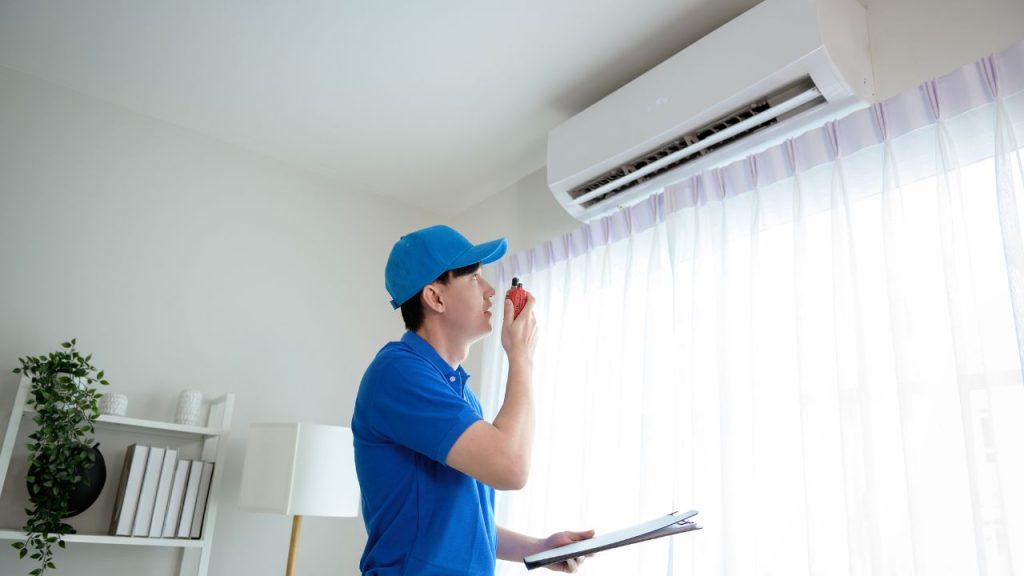
Additional Costs to Consider When Replacing Central Air
Replacing a central air system involves several hidden costs. Beyond the unit and installation, some expenses can catch homeowners off guard. One such cost is the need for permits. Depending on local regulations, securing a permit might be necessary, adding to the overall expense.
Disposing of the old unit can also incur fees. Some contractors include this in their service, but others charge extra. During installation, it’s also important to protect the outside ac unit and the line set from outdoor elements to prevent damage and ensure system longevity. Understanding these details upfront can prevent unexpected bills.
Upgrading ductwork to accommodate a new system can also increase costs. If the existing ducts are incompatible or damaged, repairs or replacements become necessary.
Lastly, homeowners may encounter fees for electrical upgrades. Newer systems might require updated electrical components, which can significantly increase costs and impact the final cost of replacement.
Potential additional costs include:
- Permit fees
- Disposal charges
- Ductwork improvements
- Electrical upgrades
Preparing for these expenses ensures a more accurate budget, helping to avoid surprises during installation.
How to Save on Central Air Conditioner Replacement Cost
Saving money on central air replacement can be a thoughtful process. Begin by planning ahead. Off-peak seasons often offer better deals, as demand for installation services drops. Many air conditioning services also provide seasonal discounts and promotions for replacements during these times.
Another strategy is to compare quotes from several contractors. This ensures you get the most competitive price. Additionally, it allows you to weigh different service options and warranties.
Consider energy-efficient models. While they may have a higher upfront cost, their long-term savings on energy bills can be substantial. Exploring these models might offer significant financial benefits over time.
Finally, check for available rebates and incentives. Many energy companies and manufacturers provide discounts for upgrading to efficient units. This can offset part of the initial expense, making a new system more affordable.
To recap, saving tips include:
- Scheduling installation during off-peak times
- Comparing multiple contractor quotes
Consider these steps for potential cost reductions:
- Choosing energy-efficient models
- Applying for rebates and incentives
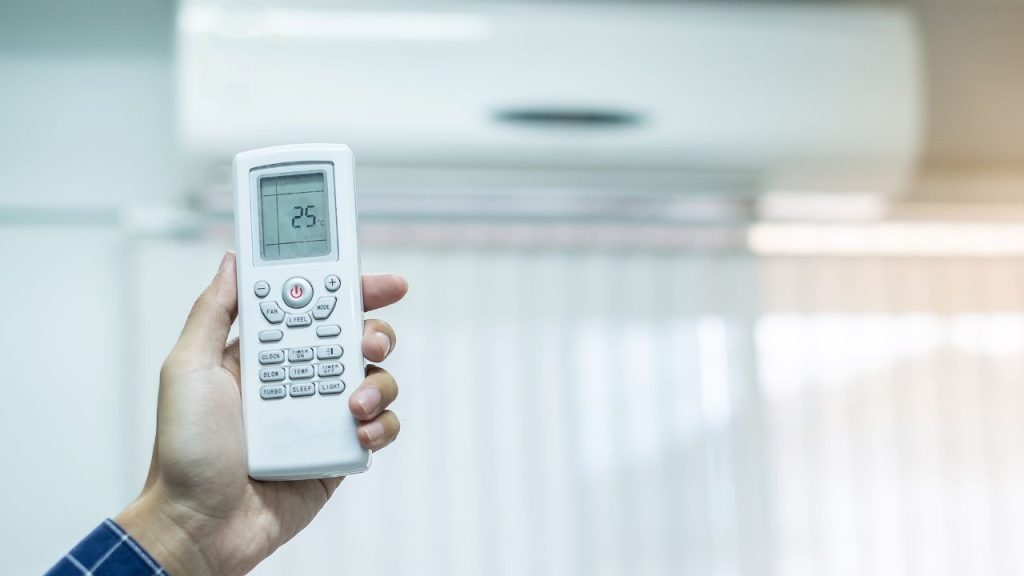
Rebates, Tax Credits, and Financing Options
Exploring rebates and tax credits can significantly reduce central air replacement costs. Many government programs offer incentives for energy-efficient upgrades.
These incentives encourage homeowners to choose systems with higher SEER ratings. This can lower your upfront costs, making an efficient system more attainable. Don’t overlook local energy provider offers; they may provide additional rebates.
Financing options are another route for easing the financial load. Many HVAC companies offer payment plans with low interest. These options can spread the cost over several years, making it more manageable and can help homeowners afford a more efficient unit that offers better long-term savings and performance.
Consider all these financial opportunities to maximize savings. Exploring each avenue will ensure you get the best deal possible. Remember, a new, efficient system not only saves money but also enhances home comfort.
In summary, financial options include:
- Rebates and tax credits
- Low-interest financing plans
By using these, you can effectively mitigate replacement costs.
The Benefits of Upgrading Your Central Air Conditioning System
Upgrading your central air system can enhance comfort and efficiency. Installing a new AC unit offers improved temperature control, higher energy efficiency, and better indoor air quality. Modern systems provide better temperature control and improve indoor air quality. They are designed to offer consistent cooling, reducing hot and cold spots in your home.
Investing in a new system can lower energy bills. Advanced models use less energy while maintaining optimal performance. Reduced energy consumption is not only cost-effective but environmentally friendly.
Modern HVAC systems often come with smart technology. Features like programmable thermostats allow precise temperature adjustments, adding convenience. You can even control them remotely for greater flexibility.
Upgrading can boost your property’s value. Buyers value efficiency and comfort, so a new system makes your home more attractive. Enhanced features can also make daily life more pleasant and less energy-intensive.
Benefits of upgrading include:
- Improved energy efficiency
- Better air quality
- Increased home value
Choosing the Right Air Conditioner for Your Home
Selecting the right air conditioner for your home involves evaluating several factors to ensure efficient cooling and long-term savings. Start by considering the size of your home and your specific heating and cooling needs. The square footage of your living space will help determine the appropriate capacity for your new air conditioning system, ensuring it delivers optimal performance without wasting energy.
Energy efficiency should be a top priority. Look for high efficiency systems or two-stage air conditioners that can adjust their output to match your comfort needs while reducing energy consumption. Depending on your home’s layout and your preferences, you may choose between a split system, which offers flexibility and efficiency, or a window unit for smaller spaces or supplemental cooling.
Consulting with an HVAC professional is essential—they can recommend the best air conditioner for your home, explain the cost to replace your old unit, and help you navigate available energy efficiency incentives. Many homeowners qualify for tax credits or rebates when installing a new energy-efficient air conditioning system, which can help offset the initial investment. By considering all these factors, you can select a system that meets your needs, fits your budget, and provides reliable comfort for years to come.
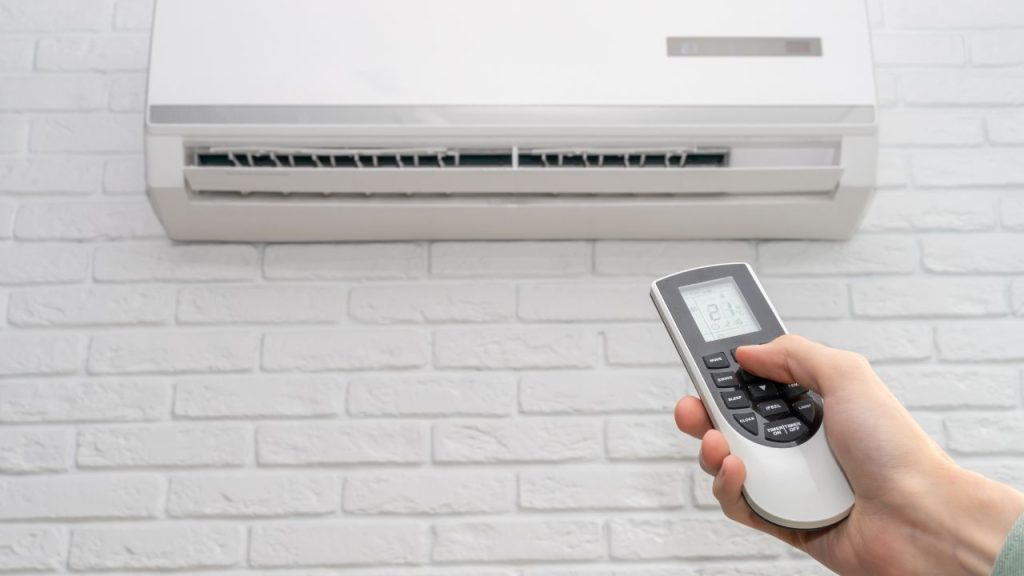
Choosing the Right HVAC Contractor for Your Replacement
Selecting the right HVAC contractor is crucial for a successful installation. Experience and expertise ensure the job is done correctly. Always look for licensed and insured professionals to handle your project.
Research is key to making an informed decision. Check reviews and ratings online to gauge customer satisfaction. It’s beneficial to ask for recommendations from friends or neighbors with similar projects.
When evaluating contractors, obtain multiple quotes. Compare not just the price but also the range of air conditioning services offered, such as seasonal discounts, promotions, and maintenance packages. Ensure the contractor provides transparent communication and detailed project timelines.
Questions to ask potential contractors:
- Are you licensed and insured?
- Can you provide references?
- What is your estimated project timeline?
Frequently Asked Questions About Central Air Conditioner Replacement Cost
Replacing a central air conditioner can be a significant investment. It’s natural to have questions. AC replacement can raise many questions for homeowners, such as when it’s time to replace, what options are available, and how to manage costs. Here are some common queries that homeowners often ask.
How long does the installation process take?
Typically, installing a new system takes one to two days. This can vary based on complexity and any additional work needed.
Is there a way to reduce the overall cost?
Yes, rebates, tax credits, and comparing quotes can help. Discuss potential discounts with your contractor.
What should I consider when choosing an HVAC system?
Consider the SEER rating, system size, and energy efficiency. Discuss options with a professional to select the best fit.
By addressing these questions, homeowners can make more informed decisions. Always consult with a trusted professional to address specific concerns.
Conclusion: Making the Most of Your Central Air Investment
Investing in a new central air conditioning system can enhance your home’s comfort significantly. By selecting the right system and contractor, you ensure optimal performance.
Consider energy efficiency and long-term savings when choosing your system. Evaluate various options and seek professional guidance to maximize your investment benefits. Prioritize regular maintenance to extend the system’s lifespan. This attention to detail ensures continuous comfort and peace of mind for years to come.


